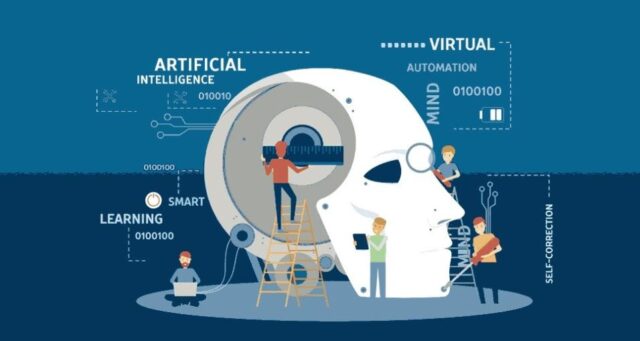In today’s digital landscape, delivering a personalized customer experience is more important than ever. Customers expect tailored interactions that cater to their preferences and behaviors. Artificial Intelligence (AI) is revolutionizing the way businesses approach personalization, enabling them to create more engaging and relevant experiences for their users. Here’s how you can leverage AI to enhance personalized customer experiences on your website.

1. Understanding Customer Behavior
AI can analyze vast amounts of data to help you understand customer behavior patterns. By collecting and analyzing data from various touchpoints, such as website visits, purchase history, and interactions, AI algorithms can identify trends and preferences. This insight allows you to tailor your content, product recommendations, and marketing strategies to meet the specific needs of your audience.
2. Personalized Product Recommendations
One of the most effective ways to use AI for personalization is through product recommendations. By employing machine learning algorithms, you can analyze customers’ past purchases and browsing behavior to suggest products they are likely to be interested in. For example, e-commerce giants like Amazon utilize AI to recommend related products based on what customers have viewed or purchased, significantly boosting conversion rates.
3. Dynamic Content Personalization
AI can help you create dynamic content that adapts based on individual user profiles. By analyzing data such as location, browsing history, and previous interactions, AI can customize website elements in real-time. For instance, you can show different headlines, images, or offers to users based on their preferences, enhancing the relevance of your content and encouraging deeper engagement.
4. Chatbots and Virtual Assistants
Integrating AI-powered chatbots on your website can significantly improve customer experience. These virtual assistants can provide instant responses to customer inquiries, assist with navigation, and even offer personalized product suggestions. By analyzing user interactions, chatbots can learn over time, becoming more efficient and capable of handling more complex queries, which enhances the overall user experience.
5. Behavioral Email Targeting
AI can also enhance your email marketing strategies by personalizing content based on user behavior. By analyzing how customers interact with your website and previous emails, AI can segment your audience and send targeted messages. For example, you can send personalized product recommendations, abandoned cart reminders, or special offers based on individual preferences, significantly improving open and conversion rates.
6. Predictive Analytics for Anticipating Customer Needs
Predictive analytics, powered by AI, allows businesses to anticipate customer needs and preferences. By analyzing historical data and trends, AI can predict future behavior, enabling you to proactively offer products or services that meet customer expectations. For instance, if a user frequently buys sports equipment, your AI system can alert them to upcoming sales or new product launches in that category.
7. Enhanced User Experience Through A/B Testing
AI can streamline the A/B testing process by quickly analyzing which variations of web pages perform better in terms of user engagement and conversions. By testing different layouts, content, or calls to action, AI can help you identify the most effective strategies for personalization. This data-driven approach ensures that your website continually evolves to meet customer preferences.
8. Feedback and Sentiment Analysis
Utilizing AI for sentiment analysis can provide valuable insights into customer opinions and feedback. By analyzing comments, reviews, and social media interactions, AI can gauge customer sentiment toward your products or services. This understanding allows you to make informed decisions about product improvements, marketing strategies, and customer service approaches, ultimately enhancing the customer experience.
9. Implementing AI-Powered Search
A robust AI-powered search feature can significantly improve the user experience on your website. Traditional search functions often yield irrelevant results, leading to customer frustration. AI-enhanced search engines can understand user intent and context, providing more accurate and relevant search results. This personalization ensures that users find what they’re looking for quickly, reducing bounce rates and increasing satisfaction.
10. Continuous Learning and Improvement
The beauty of AI is its ability to learn and adapt over time. As you gather more data on customer interactions, your AI systems can refine their algorithms, leading to even more personalized experiences. Regularly analyze performance metrics to assess the effectiveness of your AI-driven personalization strategies and make adjustments as needed to continuously enhance customer satisfaction.
Conclusion
Leveraging AI for personalized customer experiences on your website can significantly boost engagement, customer satisfaction, and conversion rates. By understanding customer behavior, providing tailored recommendations, and implementing intelligent chatbots, businesses can create a seamless and engaging online experience. As technology continues to evolve, embracing AI personalization will not only set you apart from competitors but also foster long-lasting relationships with your customers. Investing in AI-driven personalization is no longer just an option; it’s a necessity in today’s competitive digital landscape.


No responses yet